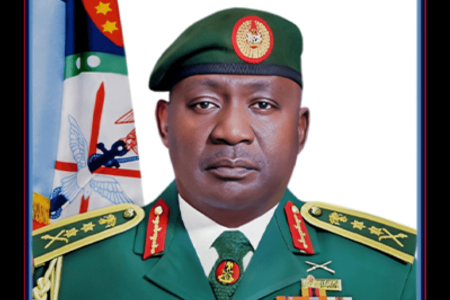Insecurity in the Sahel: CDS Musa Calls for Multi-Dimensional Solutions Beyond Military Action
By Matthew Eloyi
The Chief of Defence Staff (CDS), General Christopher Musa, has emphasised the need for a multi-dimensional approach to tackle insecurity in the Sahel, stating that military intervention alone is insufficient.
Speaking during the inaugural Annual International Lecture organised by the News Agency of Nigeria (NAN) in Abuja, Gen. Musa addressed the theme, “Insecurity in the Sahel (2008-2024): Dissecting Nigeria’s Challenges – Genesis, Impacts and Options”. He highlighted Nigeria’s strategic importance in the region, which makes it a prime target for security threats.
“The Sahel has, in the last decade and a half, become synonymous with instability, violence, and insecurity,” Musa said, citing the rise of insurgent groups like Boko Haram and ISWAP, as well as the spread of violent extremism, human trafficking, and illegal arms proliferation.
He pointed out that the roots of insecurity in the Sahel stem from a combination of local and global factors, including poor governance, economic marginalisation, climate change, ethnic tensions, and the spillover from conflicts in North Africa and the Middle East.
Gen. Musa particularly noted the impact of the 2011 collapse of Libya, which unleashed an influx of weapons and fighters, fueling militancy across the region. “Nigeria, as a critical player in the region, has borne a significant share of the fallout from this instability,” he said.
According to the CDS, the Boko Haram insurgency in Nigeria’s North East since 2009 has devastated communities, stretched military resources, displaced millions, and hindered economic development. He also flagged Nigeria’s porous borders with Sahelian countries, which have enabled transnational criminals, including smugglers, human traffickers, and arms dealers, to operate freely.
Musa called for collaborative efforts involving the government, civil society, international partners, and the private sector to address these challenges. “Let us always remember that Nigeria’s security and that of the entire Sahel region depend on our ability to find lasting solutions that promote peace, stability, and prosperity for all,” he added.
